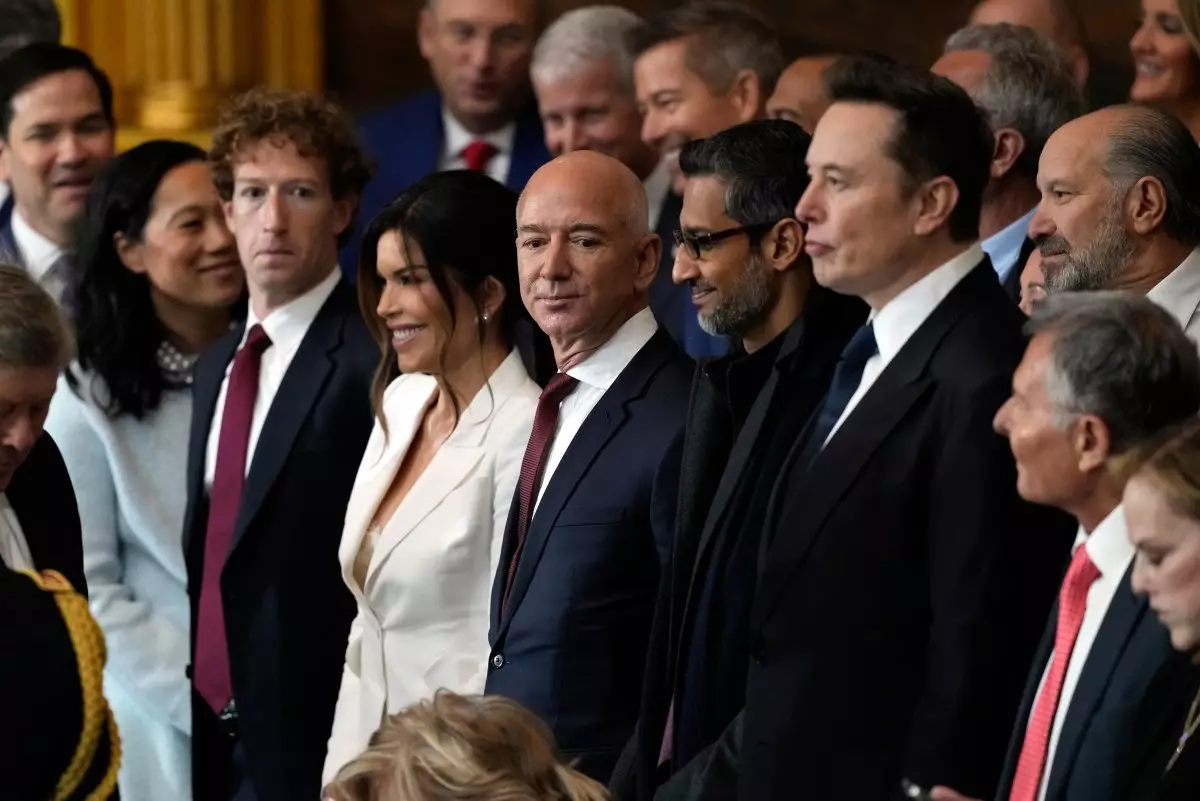In the current landscape of American politics, the contention between technology and governance is reaching new heights, particularly concerning artificial intelligence (AI). With rapid advancements in AI capabilities, the potential for misuse and political manipulation has become a focal point. House Judiciary Chair Jim Jordan’s recent inquiry to major tech firms, seeking communications with the Biden administration regarding allegations of censorship, is emblematic of a larger struggle: a collision course between conservative lawmakers and Silicon Valley. Jordan’s aggressive pursuit of perceived collusion highlights an increasing narrative among conservatives that Big Tech is becoming an arm of liberal agendas aimed at silencing differing viewpoints.
The essence of this inquiry isn’t merely about data; it represents an ideological battle over the regulation and use of AI. When Jordan targets companies like Google and OpenAI, he does so not only to uncover supposed wrongdoing but to mobilize his base against a perceived bias—an assertion that could have significant repercussions for how tech giants operate under scrutiny from both the public and lawmakers.
Censorship and Corporate Responses
As allegations of AI-driven censorship become mainstream, several tech companies find themselves between a rock and a hard place. They are faced with pressure from all directions—on one hand, they must ensure their platforms remain free from harmful misinformation, while on the other, they are accused of diluting free speech. OpenAI and Anthropic have made proactive moves in response to these pressures: OpenAI’s announcement of adjustments to its training protocols aimed to ensure a broader representation of perspectives was framed as an effort to uphold its core values. However, such actions can easily be interpreted as capitulating to political pressure, causing a rift in the trust users place in these platforms.
The tech sector’s responses also reveal a puzzling dichotomy. While some companies are moving to adapt their AI models to navigate politically sensitive queries better, others, like Google with its Gemini chatbot, have opted for a more conservative approach by largely avoiding political discussions altogether. These strategies suggest an underlying fear of backlash or regulatory repercussions that can severely impact company operations and public perception.
The Implications of Political Engagement
As lawmakers like Jim Jordan intensify their scrutiny, the implications for the broader tech ecosystem are profound. This political pressure could catalyze a shift in how AI companies approach speech moderation and user interaction. Conservative lawmakers could succeed in reshaping the narrative around AI, positioning themselves as defenders of free speech while the tech industry struggles to maintain a balance between content moderation and censorship.
Moreover, the omission of Elon Musk’s xAI from Jordan’s inquiry raises questions about favoritism and alliances within the political and business landscapes. Musk’s influence and history of opposition to perceived censorship gives him a unique stance, indicating how political affiliations can create discrepancies in regulatory scrutiny. By sidestepping Musk’s frontier AI lab, Jordan implies a tendency to target only those companies seen as perpetuating a ‘liberal agenda,’ which only serves to deepen the divide between opposing political narratives in technology.
The Clashing Ideologies of AI Governance
The argument that AI should not serve as an instrument of political ideology is gaining traction among tech leaders who assert a commitment to non-partisan practices. However, as the lines blur between technology and politics, the ideology of governance related to AI continues to evolve. The implications of AI use, especially concerning censorship, are profound and warrant serious consideration.
The 2024 US election casts a looming shadow over current developments, with both tech companies and politicians alike aware that AI’s role could drastically influence voter perception and engagement. As AI adjusts to political climates and companies attempt to navigate this complex terrain, the possibility of misconstrued intentions looms large, creating an atmosphere permeated with mistrust and skepticism.
The interplay between AI technology and political motives will be a critical issue in the coming years. With emerging technologies come new responsibilities and ethical dilemmas that require delicate handling in the face of mounting political scrutiny. Whether this yields a more conscientious approach to AI or exacerbates existing divisions remains to be seen, but one thing is clear: the conflict between innovation and ideology is far from resolution.

